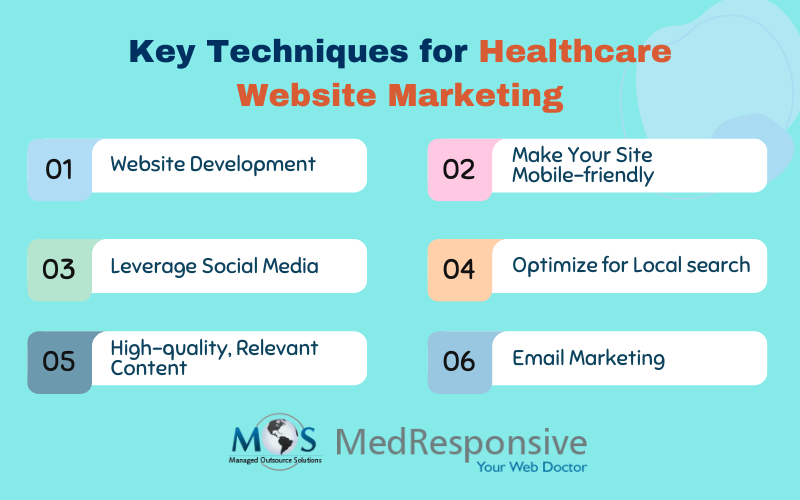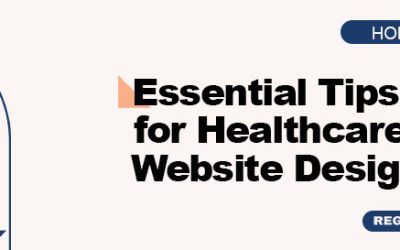Patients no longer rely solely on word-of-mouth referrals or printed directories to find healthcare providers. Instead, they turn to the internet, using search engines, social media, and reviews to make informed decisions about their care. This shift in patient behavior means that a well-marketed medical website can be a powerful tool in attracting new patients, building trust, and positioning your practice as a leader in the industry. A reliable provider of healthcare digital marketing services implements a thoughtful and comprehensive marketing approach that helps healthcare organizations increase their website traffic and also convert visitors into loyal patients.
Digital marketing is a game-changer for a healthcare organization in many areas, from patient care to infrastructural cost savings, just like any other industry. According to a McKinsey & Company estimate, by 2030, the marketing strategy can save as much as $3 trillion annually. Enabling healthcare businesses to adopt diverse digital marketing strategies helps equip them for the future. However, marketing a medical website requires more than just a professional design. To stand out in a crowded digital space, your website must be easily discoverable, provide valuable information, and offer an engaging experience for visitors.
Basic Principles of Healthcare Website Marketing
- Website Development: When it comes to web marketing, many have a misconception that simply providing loads of information will work. However, the fact is that many techniques these days depend on good healthcare website development, along with a well-structured design and quality content. Since there may be numerous pages on the website, it is important to link the information in an organized way, allowing visitors to navigate it easily. Proper optimization of the website is essential for ensuring that it loads quickly. When it comes to content, write it keeping your patients, representatives from drug companies, medical practitioners and potential clients in mind. Focus on why your practice is credible and different from others. Maintain the website properly and keep the content relevant and updated in order to ensure organic growth of the website.
- Make Your Site Mobile-friendly: With smartphones accounting for more than 55% of web traffic, most of your competitors have likely already optimized their medical website designs for mobile devices. With the majority of potential patients investigating practices on their smartphones, having a mobile-friendly website is no longer an option; it’s a requirement. Make sure your site is responsive so that layouts and text automatically adjust for smaller screens. Images and buttons should be resized without distortion. Content should be accessible with 1-2 taps. While responsive design is preferable, a specialized mobile site or app is also an option. In any case, mobile users must be included.
- Leverage Social Media: Social media is an important element when it comes to marketing your medical business online. Social media networks such as Facebook, Instagram, and LinkedIn can be effective tools for contacting potential patients. Create a more personal connection with your audience by sharing blog pieces, practice updates, or patient testimonials. Use customized social media ads to offer certain services, such as cosmetic procedures or new treatment alternatives, to the appropriate audience. Engaging with your followers by answering queries or offering health suggestions will boost your online profile. Professional social media optimization services can help you interact with patients and provide them with information on your services as well as tips and advice. This will help potential clients, visitors and patients to gain a thorough understanding about your medical practice. Moreover, it can also increase referrals and visitor traffic to the main website.
- Optimize for Local search: Local SEO is crucial for medical practices because patients often look for nearby healthcare providers when they need treatment. To improve your exposure in local search results, make sure your Google My Business (GMB) profile is completely optimized. This includes providing your practice’s address, phone number, office hours, and other pertinent categories. Keeping your GMB profile current and up to date allows potential patients to easily locate you, and reviews on this site can increase reputation and rankings. You can also use location-specific keywords throughout your site. Include your city or neighborhood name in titles, meta descriptions, and content to increase your site’s chances of ranking in local search results. Including a dedicated “Contact Us” page with embedded maps and directions boosts local SEO.
- High-quality, Relevant Content: Producing content that is both relevant and of good quality is crucial to drawing in and keeping prospective patients. By providing visitors with information on health-related topics, available treatments, and preventive care, informative blogs, FAQs, and articles can establish your business as a reliable authority in the industry. By addressing common patient problems or investigating current health trends, you show your competence and add value, which increases patient confidence. Your SEO efforts will also benefit from regular content generation. Websites that consistently add new, educational information are rewarded by search engines, which raises your site’s exposure and ranks. Make sure your material is valuable and optimized for pertinent medical keywords by concentrating on subjects that appeal to your audience.
- Email Marketing: One effective strategy for keeping in touch with patients and sources of referrals is email marketing. You can advertise your healthcare services more successfully if you send messages that are specifically targeted to these demographics. Sending out newsletters with health advice, information on novel therapies, or significant announcements is one way to do this. Emails can also be used for useful things like follow-up care instructions or appointment reminders, which can improve patient involvement and lower the number of no-shows. By customizing information according to patient demographics or medical histories, targeted email campaigns guarantee relevancy and increase engagement rates. Email marketing enhances patient relationships and fosters long-term commitment to your clinic or hospital by informing and connecting patients. It also advertises your healthcare offerings.
A well-rounded medical website marketing strategy is essential for attracting new patients and growing your practice. By focusing on SEO, mobile optimization, high-quality content, and patient engagement, you can ensure that your website not only ranks well on search engines but also provides value to your patients. By implementing the right techniques with the assistance of healthcare digital marketing services your medical practice can build trust, enhance patient experience, and ultimately drive success.





